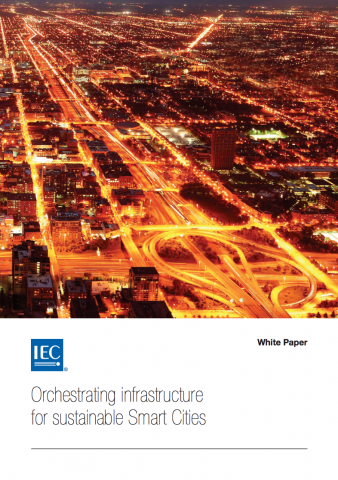Orchestrating infrastructure for sustainable Smart Cities


This White Paper is the fifth in a series whose purpose is to ensure that the IEC can continue through its International Standards and Conformity Assessment services to solve global problems in electrotechnology. The White Papers are developed by the IEC MSB (Market Strategy Board), responsible for analyzing and understanding the IEC’s stakeholder environment, so as to prepare the IEC to strategically face the future.
The pace of urbanization at the global level is unprecedented. Every day, urban areas grow by almost 150 000 new people, either due to migration or births. Between 2011 and 2050, the world’s urban population is projected to rise by 72 % (i.e. from 3.6 billion to 6.3 billion) and the population share in urban areas from 52 % in 2011 to 67 % in 2050.
The ability to effectively and effi ciently manage rapid urbanization will become essential. Cities need to reach, achieve and maintain the essential objectives of economic, social, environmental and fi nancial sustainability. For this, they will require increasing the effi ciency of existing and new infrastructures and services to a level never achieved before. This will require a leap in integration of all infrastructures, whether they are public or privately funded or operated and this relates to management and operations. There is a consensus that the daily life of all citizens will be infl uenced by the degree of smartness of the solutions, the degree of user-friendliness as well as the costs incurred.
International Electrotechnical Commission, 2014.
Orchestrating infrastructure for sustainable Smart Cities
http://www.iec.ch/whitepaper/pdf/iecWP-smartcities-LR-en.pdf
